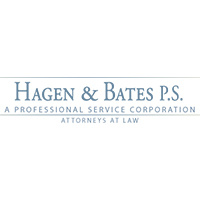Taholah Bankruptcy & Debt Lawyer, Washington
Sponsored Law Firm
-
 x
x

Click For More Info:
-
Leavy Schultz Davis, P.S.
2415 W Falls Ave Kennewick, WA 99336» view mapBankruptcy & Debt Serving your legal needs since 1947
Leavy Schultz Davis is one of the Mid-Columbia’s longest standing law firms serving Eastern Washington, Kennewick, Richland, Pasco, and the greater Tri-Cities area.
509-736-1330
Not enough matches for Taholah Bankruptcy & Debt lawyer.
Below are all Taholah lawyers.
Wayne D. Hagen
✓ VERIFIEDCriminal, Personal Injury, DUI-DWI, Business
Since the firm was established in 1993, the skilled attorneys at Hagen & Bates P.S. have provided versatile, professional and effective solutions to a... (more)
Lori Bruner
State Government, Government, Indians & Native Populations, Civil & Human Rights
Status: In Good Standing Licensed: 28 Years
Fawn R. Sharp
Indians & Native Populations, Civil & Human Rights
Status: In Good Standing Licensed: 28 Years
Karen Allston
Environmental Law Other, Indians & Native Populations
Status: In Good Standing Licensed: 29 Years
Robert M Johnson
Administrative Law, Corporate, Insurance
Status: In Good Standing Licensed: 51 Years
Robert M Johnson
Administrative Law, Insurance, Corporate
Status: In Good Standing Licensed: 51 Years
Britton A. Buckley
Federal, Family Law, Adoption, Personal Injury
Status: Inactive Licensed: 32 Years
 Justine Koehle Kennewick, WA
Justine Koehle Kennewick, WA

